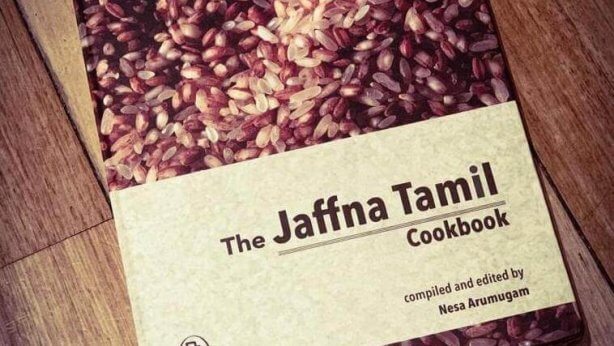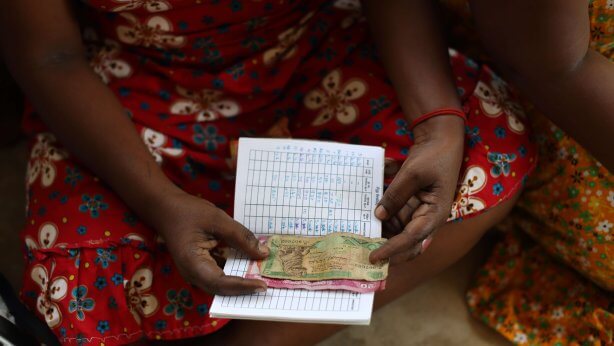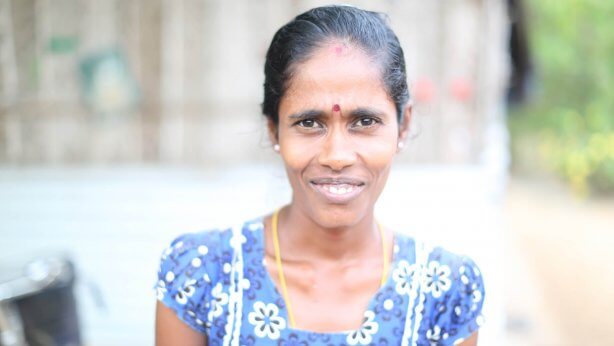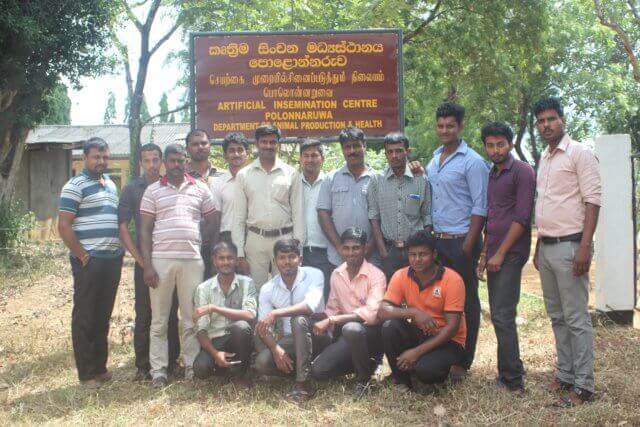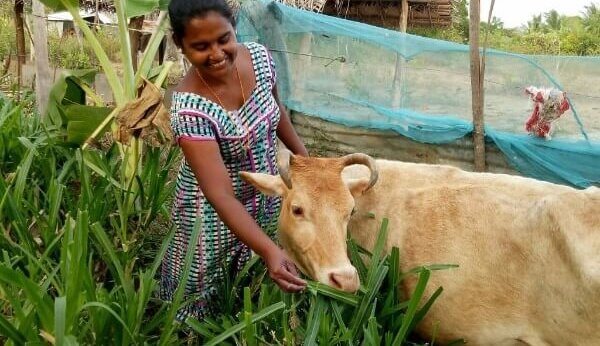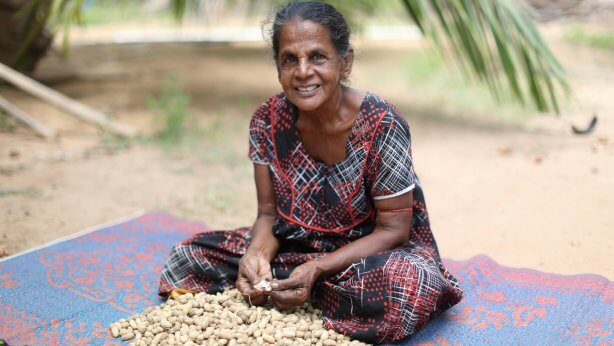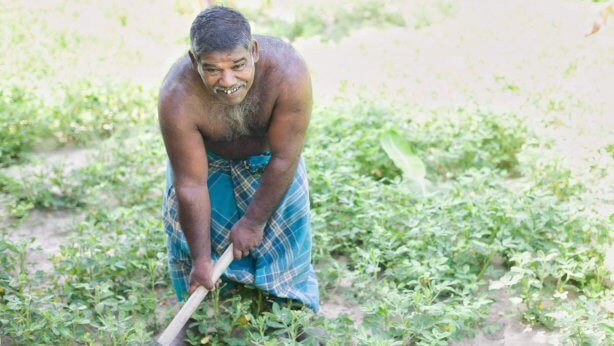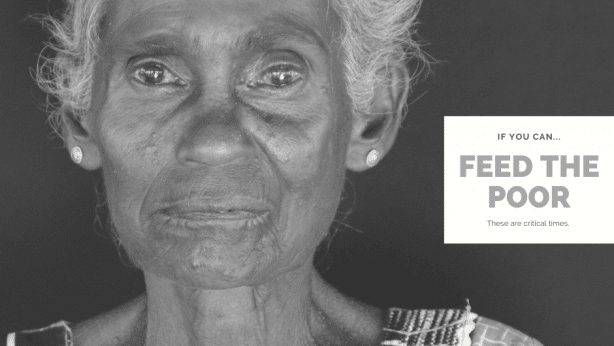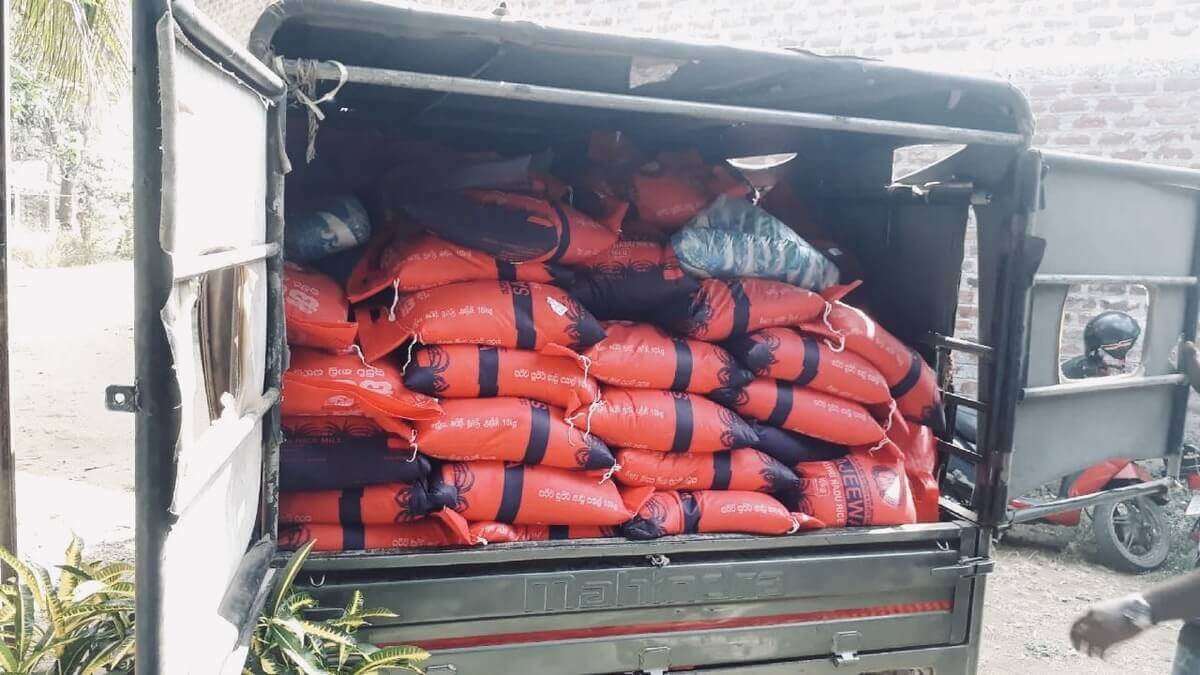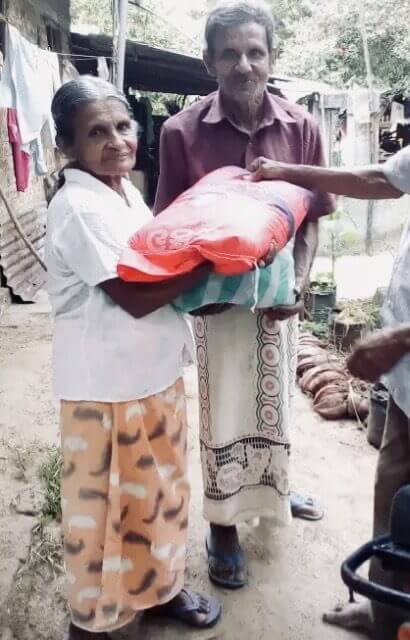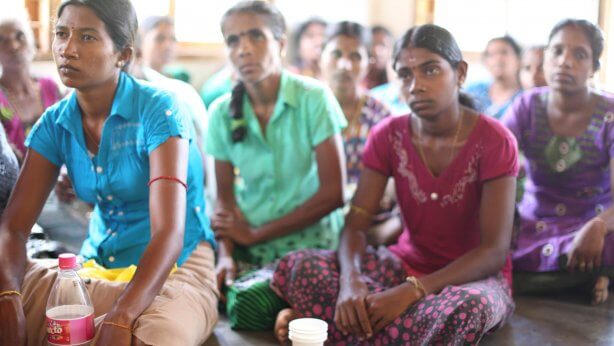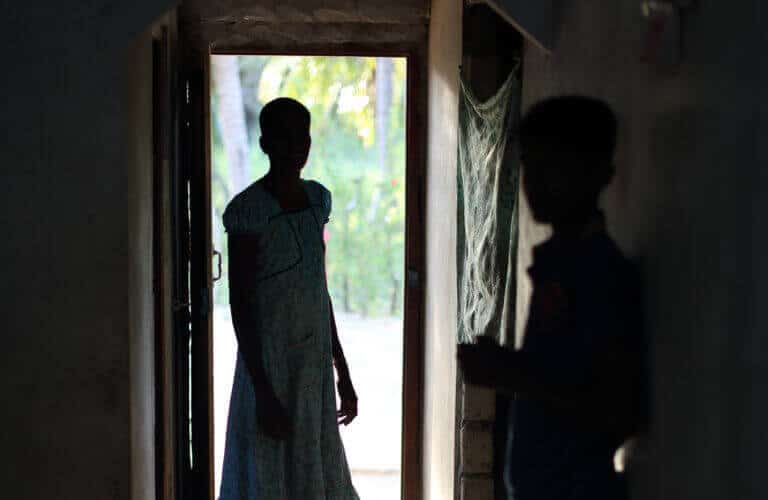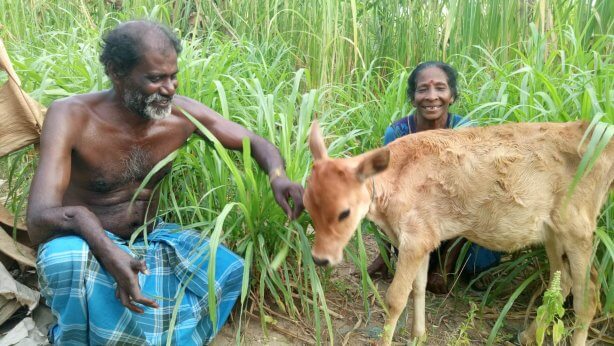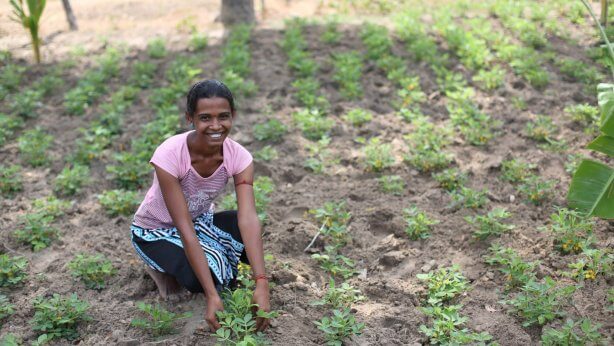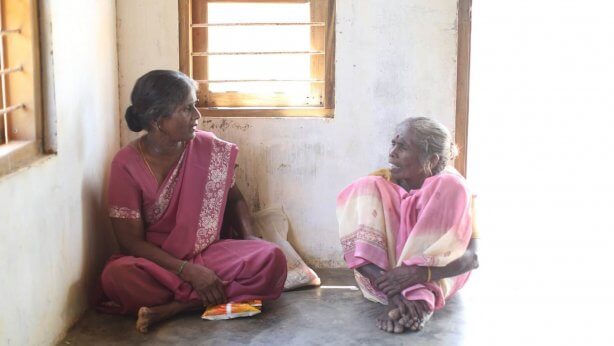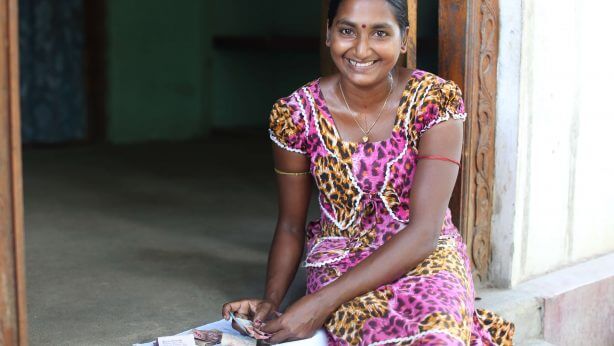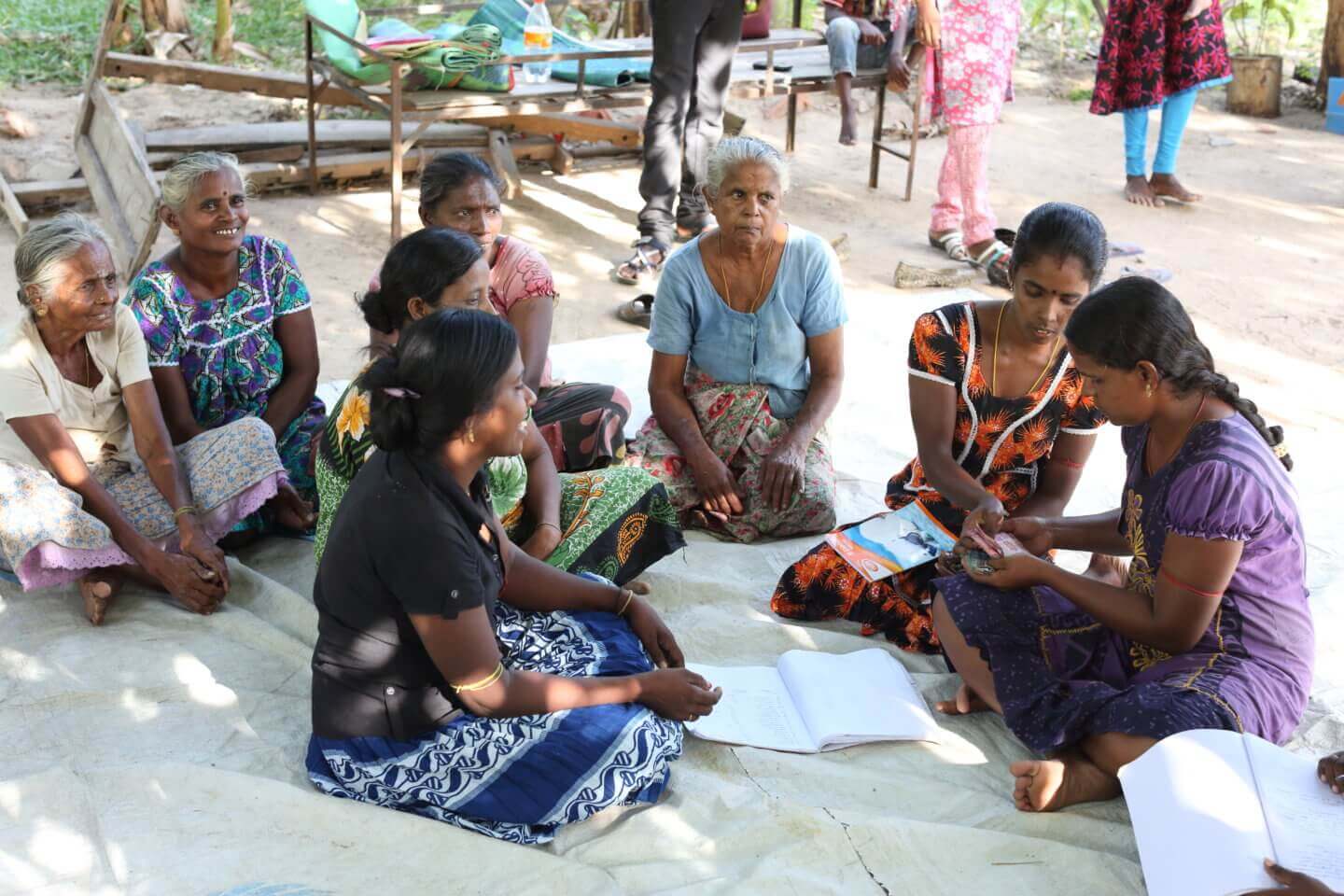Thank you to all our donors, we have met our fundraising goal!
RANJITH
Life for Ranjith was hard from the very beginning. He was born out of wedlock and his parents rejected him. He was adopted when he was three months old and, growing up, life was a struggle. There was never quite enough food to go around and work opportunities were few and far between. He got married, but soon afterwards, found himself caught up in the war and spent time in the camps where he fell into a deep depression. His wife also suffered serious injuries during the war – she still has bullets in her leg which cause her pain and mean that she walks with a pronounced limp.
Ranjith was lucky enough to have a little land of his own to farm, but he would only cultivate eggplants. He didn’t know then that over-cultivating the one crop – his eggplants – would sap nutrients from his soil. So, each season his yield (and, as a result, his income) would be less and less, and he couldn’t work out why. In desperation, he tried to fix it with fertilisers and chemicals, and he pumped his land – he did everything he could think of to make things better.
But Ranjith’s land got worse and worse until it because completely unusable. This was catastrophic – his land was his only real asset. He decided to give up farming and started labouring instead – which is hard and precarious work at the best of times. He wanted to be able to pass down this land to his children – after all, it was his livelihood. Now, though, he doesn’t know what the future holds for him and his family.
THE PROBLEM
Ranjith’s village, Theravil, is in the north of Sri Lanka. It was heavily impacted during the war and experienced direct conflict as recently as 2009. On top of this, agriculture in this part of the country has tended to be quite traditional – there hasn’t been a great deal of investment or innovation in this sector here yet.
There are other things that have made Ranjith’s problems with his land all the more difficult. For a start, his lack of direct connection to the market means that he’s dealing with middle men and getting a bad price for his produce. This poses a big problem for Ranjith, particularly when he doesn’t have a lot of eggplants to begin with. He doesn’t have the right knowledge or connections to learn how to better manage his land and increase his yield. His isolation from other farmers in his community isn’t helping either.
WHAT WE ARE DOING
Ranjith and his family are going to become one of the families who we will train in innovative agriculture practices. They will see first-hand just how well these new farming methods work. They will then become the leaders that bring these new practices to the other farmers in their village and, with our support, will help to start the process of transforming Theravil.
HOW WE ARE DOING IT
We will be working with 250 families to turn their fortunes around. They are going to learn more about their land than they ever thought possible: how to map it, how to use their precious water better, how to make their soil more fertile, how to look after their seeds, and how to improve the quantity and quality of their produce. We will connect them with the important players, including technical trainers, mainstream finance providers, and buyers in the market. We will develop their power as a group by setting them up as a collective, which will give them more control over their profits.
We take a systems approach in how we work – transforming the systems that keep the poor economically excluded. What this means is that we look at the root problems in why the poor are not being connected to the Fruit & Vegetable sector and work with the community and market actors to address these barriers, one by one.
HOW YOU CAN HELP
This programme gives 250 farmers just like Ranjith the chance to make the most of their land, access essential training and services, and secure a better future for their families.
In order to start this project in Theravil, we need to raise $118,816. This works out at $475 per family; only $95 a year over the 5-year programme to help Ranjith land a better future.
A WHOLE OF VILLAGE TRANSFORMATION IN THERAVIL
This project is just one of the projects that we are doing in Theravil. We work through a whole of village approach to improve the economic well being of the families and transform the village. We will spend five years in each village breaking down the barriers that prevent the poor from engaging in profitable markets, and earning enough to stand on their own two feet.
This means barriers both in the market as well as those socio-economic barriers that keep vulnerable families economically excluded.
We will achieve this over a five year period, by:
- Supporting the continued increase of income, assets and savings
- Working to economically empower women & men producers so that they have a voice and agency in the homes, communities and the markets in which they work, and
- Working to reduce the vulnerability of families so that they can recover from shocks and sustain their growth out of vulnerability
This project, “Landing a better future” is just one of the many we will be undertaking in this village over the next five years. To learn more about the village vision and the many projects that will come together to enable this change, you can read more here.



